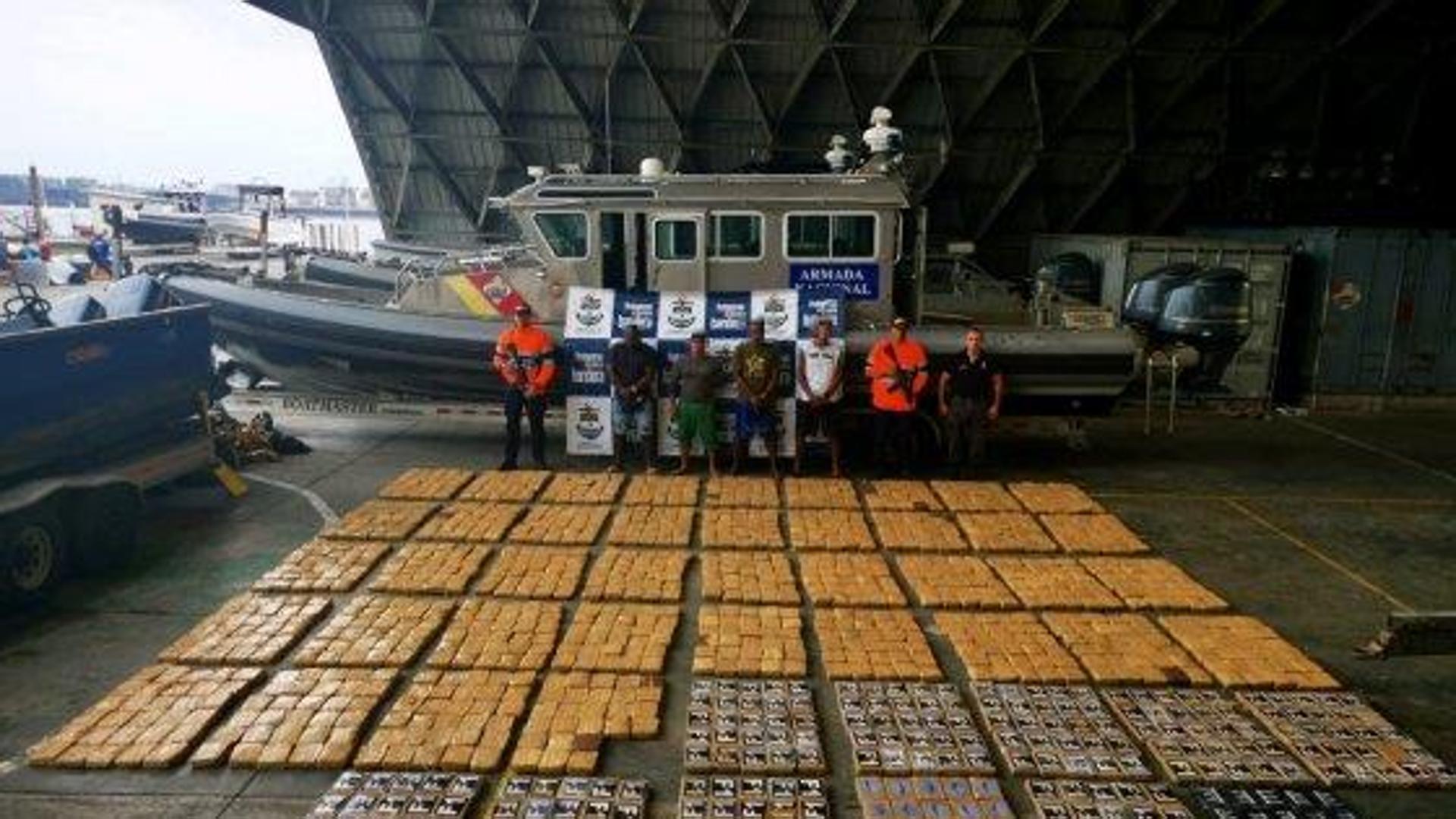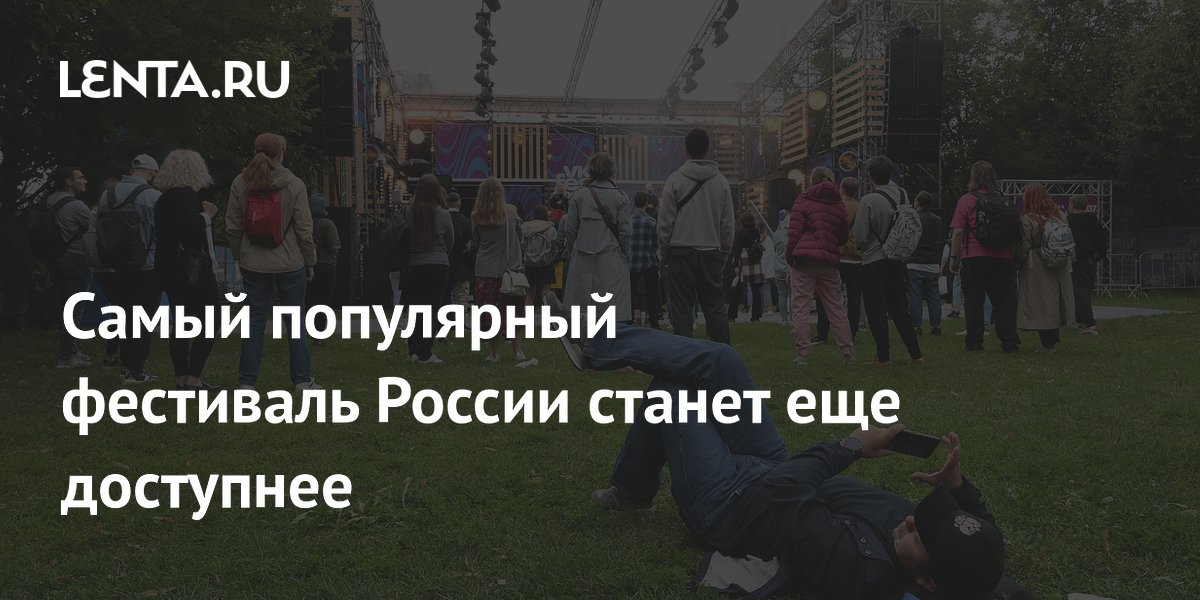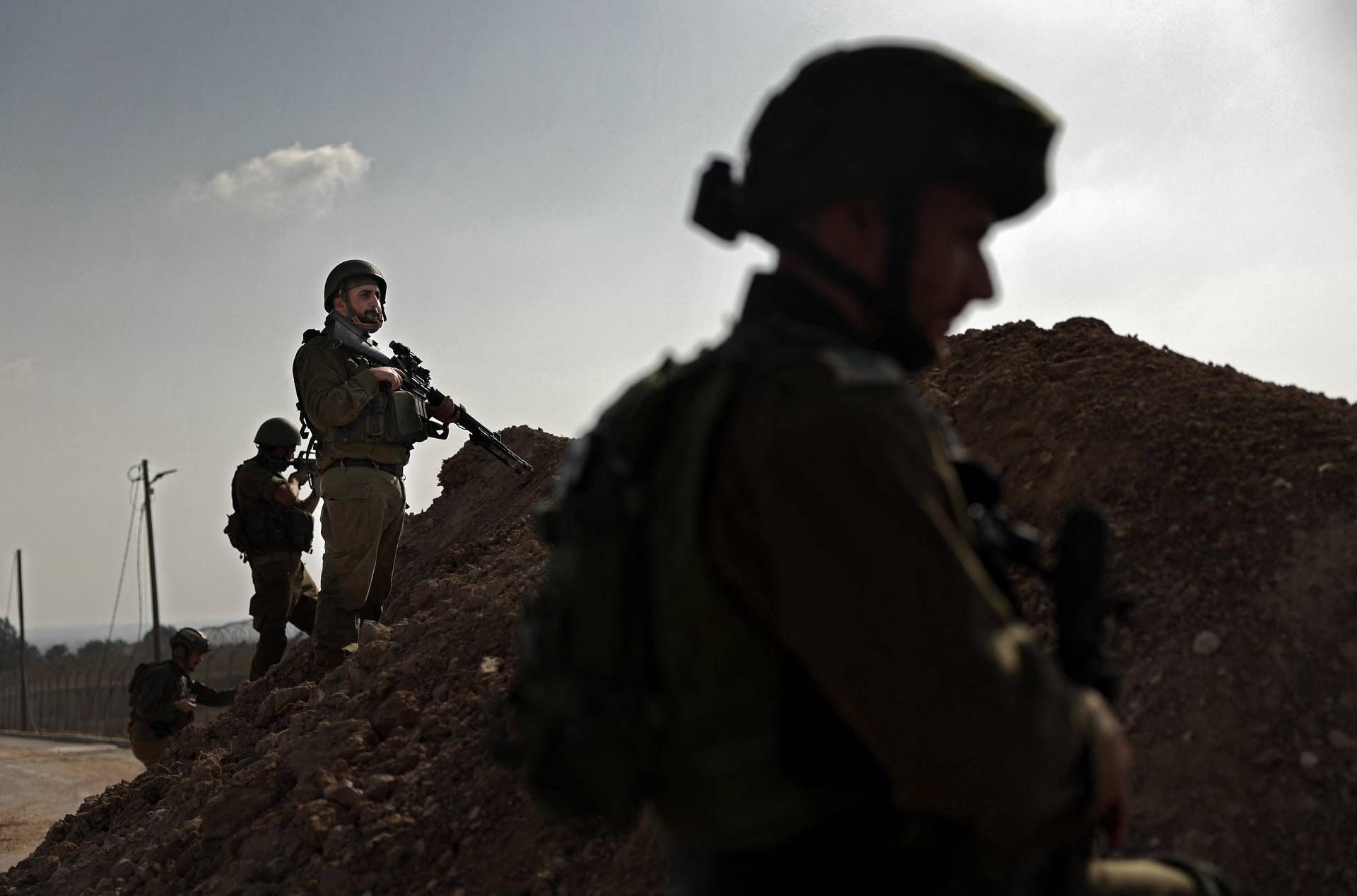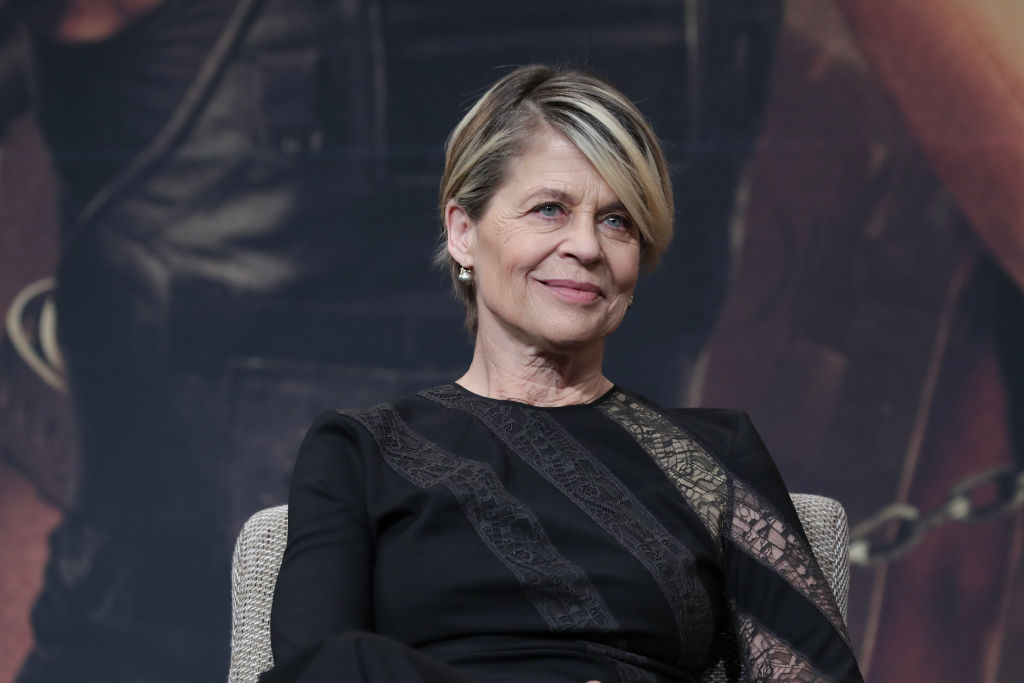The Government of Colombia, chaired by Gustavo Petro, has rejected the accusations made by political leaders and numerous citizens about a hypothetical intention of the president, Gustavo Petro, to benefit drug traffickers within his “total peace” project. This is a direct response to the nation’s attorney general, Francisco Barbosa, who a few days ago in Santo Domingo denounced that, through Congress, the Executive has presented proposals to legalize the entire drug trafficking chain in Colombia. He also remarked that he has already opposed this project, which has so far brought little success to the new cabinet.
In essence, Total Peace is a program with which Petro wants to put an end to the violence of paramilitary groups and drug cartels, especially the one in the Gulf, through dialogue. Between one and the other, the country has bled dry for decades, with a constant succession of clashes and attacks that have caused at least half a million deaths and hundreds of thousands of displaced people, fleeing the regions in conflict. In the specific case of the drug trafficker, the Government proposes to its leaders to reduce their sentences and prohibit their extradition to the United States as long as they close the ‘business’; that is, they reveal the place where their laboratories are located, the cultivation areas and the supply routes of the narcotics. The plan, however, has met with strong rejection among the right-wing parties, the financial powers and even a high number of police and Army commanders.
Faced with the latest battery of insinuations, the Government has released a three-page report in which, citing figures from the National Police, it highlights that between August 7, 2022 (date on which the president took office) and on March 14, 2023, 189,457 kilos of cocaine, 169,375 kilos of marijuana and others, 32,201 of coca base, have been seized. In addition, 1,963 laboratories producing these substances have been destroyed in operations that, according to official estimates, have dealt heavy blows to the financial infrastructures of criminal organizations.
Previously, Petro had already responded to the prosecutor via Twitter: “This is true slander. No one in Colombia has proposed legalizing cocaine. The prosecutor confuses coca leaf growers with drug traffickers. For this reason, the prisons are filled with peasants and the drug traffickers fly around in helicopters.
Gustavo Petro, during an official statement at the Government headquarters, to present his social reform plans
Reuters
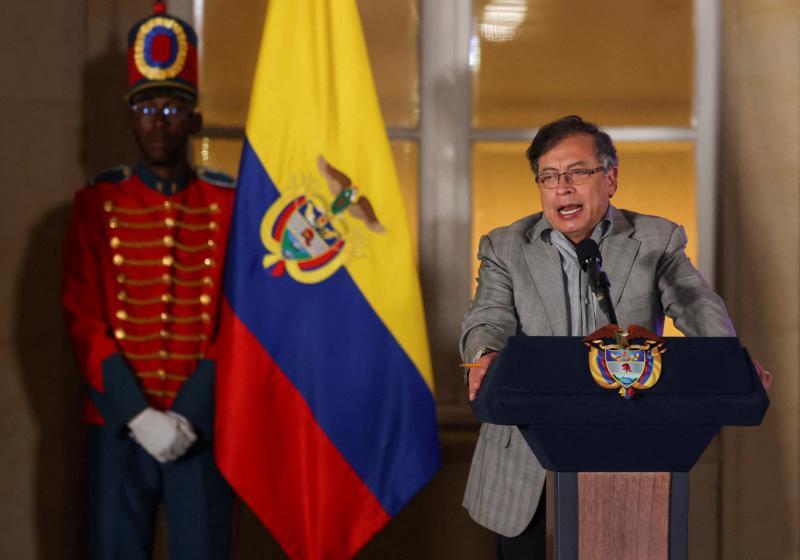
The statement from Casa Nariño, the headquarters of the Government of Colombia, relates these accusations to the political climate and the idea of ”warming up” before the regional elections on October 29. The Executive regrets that before one of the “most important electoral events in the country, some citizens are in charge of using drug trafficking as a proselytizing narrative, putting the lives of hundreds of peasants at risk.” And he understands that prosecutor Barbosa has »invented a falsehood« to position himself politically as a candidate. Such statements, continues the government statement, degrade the public debate on a conflict that requires full rigor “since drug trafficking is an activity that claims thousands of lives in the country and in the world.”
the class struggle
Since coming to power, Petro has expressed his strong desire to fight those who derive their wealth from the drug business instead of attacking peasant farmers. He has also exposed the idea of turning around the policy of fighting against illicit substances by attacking the wealth of the big drug traffickers. For the president of Colombia, the peasant represents the weakest link in the chain. According to him, “the peasants have their only means of livelihood in the cultivation of coca.”
About to celebrate eight months in power, Petro is being questioned for a political discourse framed in the class struggle, of favoring the poor and being against the rich. He has already had to make several changes of ministers, who spoke out against the health, pension, environment and labor reforms. He has opened many fronts, and among his stalwarts there is a feeling that he wants to change the country in one year, beyond what has not been possible in seventy.
Raid against drug trafficking carried out on March 29 that ended with 52 detainees in Bogotá
EFE
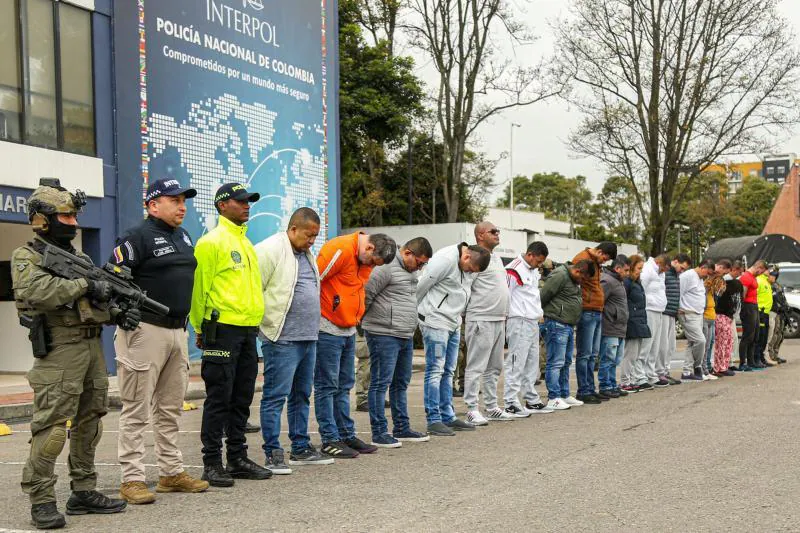
The negotiation of the peace process with the ELN (National Liberation Army) is another project that has sown serious doubts in society, especially after the attack perpetrated by this group just ten days ago in which seven soldiers who were doing military service died. and two petty officers. Petro repudiated the attack and declared that a peace process “must be serious and responsible with Colombian society.” However, in recent weeks the ELN has increased its harassment against the civilian population in several regions.
The ELN excused its attack on the military base in a dispute with the armed forces. According to the High Commissioner for Peace, Danilo Rueda, “the bilateral ceasefire is a point that is on the agenda with the ELN and we want to speed it up,” he declared. The official demanded that the guerrilla group act coherently, “respect International Humanitarian Law and generate trust in Colombian society.” In the same interview with Colombia Hoy Radio, the commissioner pointed out that in “the Government of change, the use of force is unnecessary. The bloodshed of soldiers, police, peasants, Afro or indigenous people or any inhabitant is useless. That is an ethical position.”
#Colombian #plan #dismantle #narco #turns #Petro
